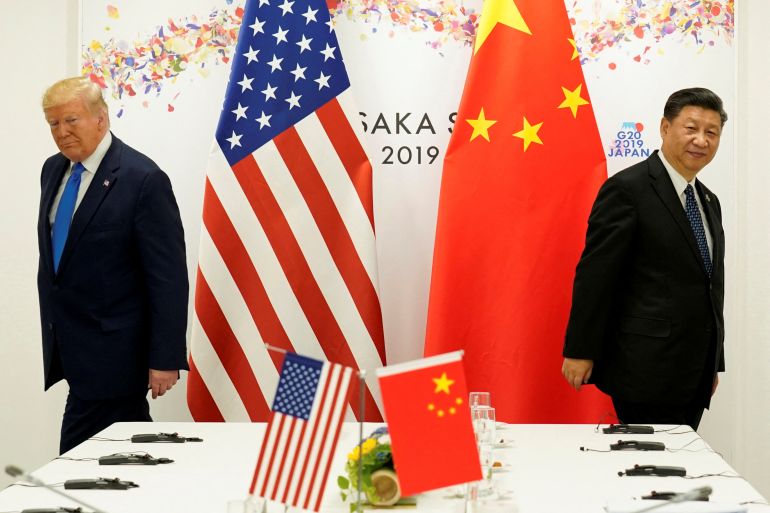UPDATE: China has issued a sharp response to U.S. President Donald Trump’s announcement of a 100 percent tariff on Chinese exports, labeling it as hypocritical and defensive of its own export restrictions on rare earth elements. This escalating trade tension was revealed in a statement from the Ministry of Commerce earlier today, emphasizing that these measures are a direct reaction to a series of U.S. actions since trade discussions in Madrid, Spain, last month.
The Ministry stated, “China’s stance is consistent. We do not want a tariff war but we are not afraid of one.” Trump’s retaliatory tariffs, aimed to take effect on November 1, come as a response to what he described as “surprising” and “very hostile” Chinese export controls, which are crucial for high-tech manufacturing, including smartphones and electric vehicles.
China’s Ministry of Commerce condemned Trump’s tariff threat as a “typical example of double standards,” asserting that recent U.S. measures, such as blacklisting Chinese firms and imposing port fees, have harmed China’s interests and disrupted the atmosphere for bilateral trade talks. Despite this escalation, China has not yet announced any countermeasures, marking a significant shift from previous rounds of tit-for-tat tariffs.
The dispute over rare earths has become a critical sticking point in the ongoing trade negotiations between the world’s two largest economies. These materials are essential for the production of various technologies, including military hardware and renewable energy equipment. China currently dominates the global market for these rare earth elements, raising concerns among companies reliant on these exports.
The renewed tensions threaten to derail a potential summit between Trump and Chinese President Xi Jinping at the upcoming Asia-Pacific Economic Cooperation summit in South Korea later this month, which would be their first in-person meeting since Trump’s return to office in January.
With global markets already feeling the impact, major tech stocks have begun to falter, reflecting heightened investor anxiety over the ongoing trade war. The situation remains fluid, and stakeholders are closely monitoring developments as the potential for further escalation looms.
As tensions rise, industries dependent on rare earth elements are bracing for potential disruptions that could have far-reaching consequences across international markets. The world will be watching closely as both nations navigate these turbulent waters.
